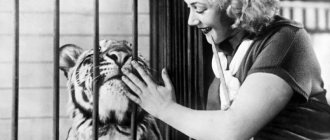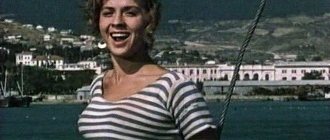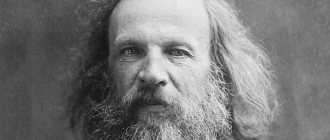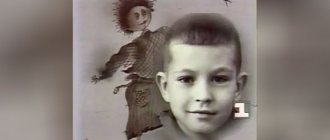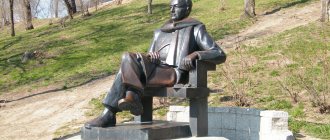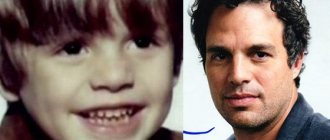On May 20, one of the most successful and at the same time one of the most atypical Russian writers celebrates his 60th birthday - the master of retro-detective, the latest historian, “the man with a thousand faces” Boris Akunin
Text: Mikhail Vizel/GodLiteratury.RF Photo: ru.wikipedia.org
The writer Boris Akunin - or, if you prefer, the “B. Akunin project” - is as ambiguous as this game name itself. A most successful fiction writer, a “role model” for ambitious aspiring writers, the triumph of the right-wing liberal idea (he achieved everything on his own! with honest hard work!) - and a scarecrow, a dirty word, a symbol of “lack of spirituality” and “entertainment” into which Great Russian Literature has slipped (all three capitalized words, of course). He himself adds fuel to the fire: he either puts two more masks on top of Akunin’s mask, Brusnikin and Borisova, or decides to become a “serious” novelist, or even tries on the role of a historian. And this is not to mention the political activity of recent years, which has brought the popular fiction writer into public figures - which he himself combines with careful concern for his privacy.
On May 20, Grigory Shalvovich Chkhartishvili turns 60 years old. On the eve of his first “adult” anniversary, we decided to recall some milestones of his biography. And Akunin’s career, of course.
Books
In the period 1994-2000. Boris served as deputy editor-in-chief of the Foreign Literature publishing house. At the same time, he was the editor-in-chief of the Anthology of Japanese Literature, consisting of 20 volumes.
Later, Boris Akunin was entrusted with the post of chairman of a major project - the Pushkin Library (Soros Foundation).
In 1998, the writer began publishing fiction under the name “B. Akunin." An interesting fact is that the word “Akunin” is derived from Japanese characters. In the book “The Diamond Chariot”, this word is translated as “villain” or “scoundrel” on a particularly large scale.
It is important to note that under the pseudonym “Boris Akunin” the writer publishes exclusively works of fiction, while he publishes documentary works under his real name.
The series of detective works “The Adventures of Erast Fandorin” brought Akunin world fame and recognition. At the same time, the author constantly experiments with different types of detective stories.
In one case, the book, for example, can be presented as a hermetic detective story (that is, all events take place in a confined space, with a limited number of suspects).
Thus, Akunin’s novels can be conspiracy theories, high society, political and many others. Thanks to this, the reader is able to intuitively understand in what plane the actions will develop.
By the way, Erast Fandorin comes from an impoverished noble family. He works in the detective department, without possessing phenomenal mental abilities.
However, Fandorin is distinguished by extreme observation, thanks to which his thoughts become understandable and interesting for the reader. By nature, Erast is a passionate and brave person, capable of finding a way out of even the most difficult situations.
Later, Boris Akunin presented a series of serial works: “Provincial Detective”, “Genres”, “Adventures of a Master” and “Cure for Boredom”.
In 2000, the writer was nominated for the Booker-Smirnoff prize, but he never managed to make it to the finals. In the same year, Akunin became a laureate of the Anti-Booker Prize.
At the beginning of 2012, it became known that the author of popular historical books - “The Ninth Savior”, “Bellona”, “Hero of Another Time” and others, is the same Boris Akunin. The writer published his works under the pseudonym Anatoly Brusnikin.
Many films have been made based on Akunin’s works, including such popular films as “Azazel”, “Turkish Gambit” and “State Councillor”.
As of today, Boris Akunin is considered the most widely read writer in modern Russia. According to the authoritative Forbes magazine, in the period 2004-2005. the writer earned $2 million.
In 2013, Akunin presented the book “History of the Russian State.” This work helps a person learn about the history of Russia in a simple and accessible form of storytelling.
While writing the book, Boris Akunin researched many authoritative sources, trying to get rid of any unreliable information. A few months after the release of “History of the Russian State,” the author was awarded the “Paragraph” anti-prize, which recognizes the worst works in the book publishing business of the Russian Federation.
Reviews by Dolinina I.V. on new books and special literature on philology, socionics, biorhythmology, psychology and medicine (Akunin, Andreev, Dashkova, Lou Salome, Marinina, Mitrokhina, Polyakov and others).
M.: “Zakharov”, 2020 – 352 p.
So we waited for the continuation of the family saga: “Aristonomy” - “Another Way” - “Happy Russia” - “Tresorium”. In the new novel, the author takes the reader to the last year of World War II. The son of doctor Anton Klobukov, Rem, goes to the front after military school. Having read Tolstoy's Sevastopol Stories, he thinks that he has learned the truth about the war. A conversation with the captain on the train makes him think about how to survive under bullets. The captain advises to feel sorry for yourself, but Rem doesn’t succeed - he feels sorry for everyone. On the way to the front line, front-line soldiers are loaded onto the train after hospitalization. One of them tears out sheets of paper from a trophy notebook covered in small handwriting. Rem begins to read notes addressed to a certain Anton, and unexpectedly gets carried away.
Thus, the author introduces into the narrative reflections on the principles of pedagogy, expressed on behalf of an as yet unknown character. A similar technique is used in the previous novels of the saga, where views on government, personality types and types of love are presented in the form of treatises. The notebook outlines ideas about the correct education of children according to their indotypes. The author of the idea proposes to develop in a child what he is initially inclined to.
One is dominated by the “head”, another by the “heart”, a third by the “body”, and a fourth by “creativity”. In total, together with the subtypes, there are 32 personality types. The author of the manuscript compares observing a child with searching for treasures inherent in him by nature. The section “Beaded Handwriting” intersperses chapters of the main narrative, gradually clarifying the mystery of the suede notebook, and with it the title of the novel.
Rem Klobukov moves with a train to the west, his front line passes through Breslau. The life of this front-line city is shown from the inside through the eyes of the girl Tatyana. She is a deaconess, caring for the elderly in a nursing home. Under the monastic clothes, the Fräulein hides his hatred of the SS men. At night, risking her life, Tanya goes to the location of the headquarters of the commandant of the fortress and signals with a flashlight to Russian fighters, showing the bombing site. “Where do the Froylians get their Soviet sadness?” The secret is revealed later.
Meanwhile, Rem, having arrived at his destination, gives the parcel to his father’s friend, Philip Blyakhin. Colonel Blyakhin serves in the NKGB unit and is ready to place Klobukov in a good place, but Rem fervently refuses. If only he knew that it was Blyakhin who was responsible for the death of his mother (the fate of the Klobukov family is told in the first parts of the saga). Philip introduces Rem to his son Fima - this is how the relationship between the children of the main characters of previous novels begins. The author gives the reader the opportunity to imagine the future development of the plot.
In the meantime, he returns us to the fate of Tatiana. It turns out that she is Aryan only according to her documents. Her mother is a Jew from St. Petersburg, and her father is a Pole named Lensky. The family lived in Poland; at the beginning of the German occupation, the father died and the mother committed suicide before being deported to the ghetto. There, the seventh circle of hell begins for Tanya - the “Circle of Hatred and Power.” After many ordeals, she ends up in an educational home (tresorium), the director of which turns out to be the author of the already mentioned pedagogical manuscript.
“From now on, I am a purebred Jew with a lot of money. The ghetto will open its gates to me, which frighten everyone so much, but for me they seem like the gates of Eden,” writes a purebred German, Volksdeutsche of the second category, about himself. He gives up his Aryan documents in exchange for money and the six-pointed star of a ghetto inhabitant.
Now the dreamer teacher's name is Axel Danziger, and he can create an island of the future behind barbed wire. Danziger finds associates in the ghetto: teachers, children in charge, and even an SS supporter. The latter warns him of imminent death and offers to hide. But Axel and his teachers do not abandon their charges. He buys a freedom pass only for Lenskaya.
Tanya did not consider herself Jewish, Polish, or German. She was Russian. The German official who issued her an Aryan passport asked her to certify in writing that he had helped her. It was clear that Germany was losing the war, and the far-sighted SS men tried to get an indulgence. Out of mischief, Tatyana wrote lines from Pushkin in Russian on the back of her photo (Lenskaya, how could it be otherwise). It was this photo that ended up with Klobukov along with the trophy notebook.
Before parting, the director of the Trezorium told Tanya about her gift: “Most likely, somewhere in the world there is a man whom you can make very happy. This is your talent<…> Your main task is to find this person and not make a mistake. Your gift is the most ordinary in the world, but no less valuable. This is a gift of love." The girl thought a lot about who she could love, and imagined him quite clearly, down to the smallest detail. They moved towards each other: Rem was going to the front line, and Tanya was trying to get through the front line through underground tunnels. The last chapter of the novel is called in Pushkin: “And you and I are planning to live together”... And although the sophisticated reader knows the ending of these lines, he hopes for continuation of the story.
“Treasure” (treasure), like other novels from the “Family Album” series, stands apart in the “Boris Akunin” project. There are no theatrical masks, no sophistication of style, few allusions and reminiscences. At the same time, Tolstoy and Pushkin parallels are obvious. The first are realized through the image of Rem, in which the features of Petya Rostov are discerned. Tanya, on the other hand, is accompanied by Pushkin’s lines throughout the novel, although she is not at all like a “genius of pure beauty.” In his characteristic manner, the author complicates the narrative, resorting to different techniques - literary (different styles) and publishing (different fonts, diagrams, photographs).
Traditional for Akunin's prose, the rejection of the author's image allows the reader to focus more on the focal characters (Rem, Tanya, Director), each of whom has their own artistic reality. Time and space in the novel not only complement each other, but sometimes tear the narrative into fragments. This creates the illusion of dispersion - the possibility of entry and exit in any part of the text.
“Family Album” contains cross-cutting characters, each of whom has their own pre- and post-history, sometimes developing in parallel. There are also references to characters from other series. Thus, in the manuscript of the director of the Tresorium there is a mention of the English philanthropist Margaret Esther, who appeared in stories about Fandorin.
The theory of education according to personality type deserves special attention. A parallel arises between Akunin’s 32 indotypes and 32 socionic ones (16 main, 32 with subtypes). There is no complete correspondence between them, since the Akunin version has additional characteristics.
One feels that the topic of education is especially close to the author, because he raised it back in Azazel. However, in both cases, the system, for various reasons, fails, leading to tragic consequences. The author seems to ask the reader a question: Is it possible, in principle, to raise a perfect person? Will Diamant, Shmaragd, Shafir, Rubin be able to become more than just beautiful surnames? I would like to believe that we will get the answer to this question in the new works of Boris Akunin.
early years
Grigory Shalvovich Chkhartishvili was born in Georgia in 1956. His father was an artillery officer, his mother was a teacher of Russian language and literature. In 1958, the family moved to Moscow. Since then, the hero of our article has lived in the capital. The love of literature in the future prose writer was awakened by one of the novels of Alexandre Dumas. Reading, according to the writer, is the best adventure.
Grigory Chkhartishvili spent his childhood in the center of Moscow. In 1973, he graduated from high school with in-depth study of the English language. After receiving a matriculation certificate, he entered the Institute of Asian and African Countries. Anyone who has read books published under the most famous pseudonym Chkhartishvili knows that the writer devoted a lot of time and effort to studying Japanese culture. And this is not a hobby for him at all. By profession, the writer is a Japanese historian.
